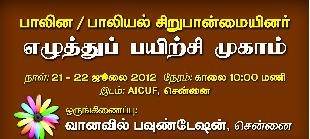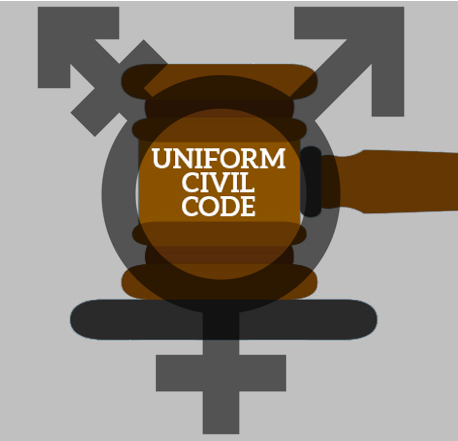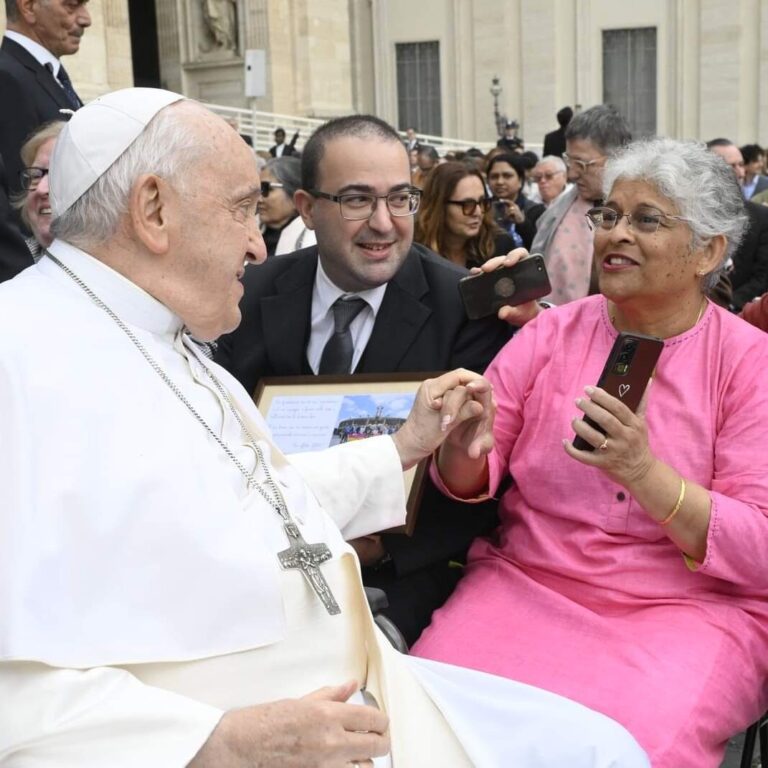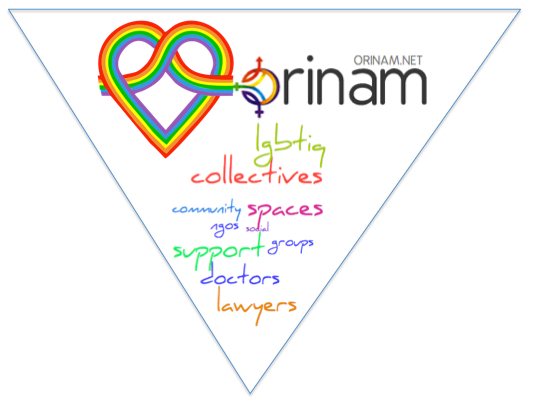Report of LGBT writing workshop in Chennai: July 21-22, 2012

Writing is instrumental for social change. The written word can not only articulate the feelings, struggles, demands and rights of our communities and societies, but can also help make these rights a reality. First-person writings on lesbian, gay, bisexual and trans* (LGBT issues), particularly in the Tamil language, are scarce.
To help address this gap, Vanavil Foundation, a transgender collective in Tamil Nadu, organized the first of a three-part writing workshop in Chennai for members of the LGBT communities. The workshop was held on July 21 and 22, 2012, at the All India Catholic University Federation (AICUF) premises in Nungambakkam, Chennai. The event was supported by Orinam and the Tamil Nadu Progressive Writers’ and Artists’ Association.
Twenty seven people people participated in this workshop, which marked the beginning of a several-months long writing process. Participants included those from community groups such as 4G Cluster, Chennai Dost, Erode Aravani Sangam, LesBiT (Bangalore), Nirangal, Orinam, Sahodaran (units 1 and 2), Sangama, SWAM, The Shakti Resource Center, TAI and Thozhi; and some registering as individuals.Vanavil Foundation has planned to support the participants with mentorship provided by Tamil writers and to bring out the results of this process in book form. The two-day workshop was a mixture of talks, sharing, games and exercises.
The workshop began with an introduction by Priya Babu, a well-known aravani activist and writer, also a member of the Managing Committee of Vanavil Foundation. She highlighted the thinking behind planning the workshop – the need for getting our voices out, writing as a therapeutic exercise, to put down in writing our own histories, etc. Mr. Tamilselvan from TPWAA spoke about the power of language to shape thinking and culture. He also emphasized the importance of training and practice and said that workshops such as these could provide exactly that.
In the small ice-breaker exercise that followed, the participants were asked to list out the number of activities that they think could be done in three minutes. Once the list was finalized, they were asked to write a paragraph each in three minutes incorporating at least three items from the list. This activity proved to be a good, humourous ice-breaker.
Mr Saidai J spoke about questions of who writes for whom and how. Interspersing his talk with comical anecdotes, he addressed the need to be clear about whom we are writing for and for what purpose. Aniruddhan Vasudevan shared his experiences as a writer from within the LGBT community in Chennai.
The afternoon session began with a game, facilitated by Srijith Sundaram, a theatre activist, which broke the participants out of stupor. They were then asked to organize themselves into small groups of four or five and were each given a topic to think about pertaining to the issues faced by the identities in the LGBT spectrum. For instance, one group worked on making a list of issues relevant to gay men; another group on issues faced by lesbian women; and so on and so forth. After spending considerable time on making their lists, representatives from each group shared their list and explained their process. At the end of the process, the participants saw that a remarkable number of the issues they had listed out could be grouped under comprehensive topics such as “LGBT and the law,” “Life Story/ Autobiography,” “Social Issues,” etc.
At the beginning of the workshop, the participants had been given a set of written material collated from writings by members of the LGBT community, and allies. At the end of the first day’s workshop, they were asked to read through the material and share the next day about at least one of the pieces.
The second day of the workshop began with a game/ activity facilitated by Aniruddhan Vasudevan. In this well-known workshop game, he called out specific gender and sexual identities and their socio-economic backgrounds and the participants made their one call as to whether the particular identity was a disenfranchised one or not. They then accounted for their judgment. After this exercise, some of he participants shared about their readings from the selected written material provided to them.
A bulk of the second day was spent in a writing exercise. The facilitators of the workshop had organized previous day’s lists into comprehensive topics and provided the groups with smaller lists to choose from. Each participant chose a topic to write from and spent the next hour and a half writing.
In the post-lunch session, each participant shared what they had written. Not only had they chosen different issues to focus on, they had also each chosen different forms of writing – poetry, essay, self-narrative, short-fiction, etc. At the end of each sharing, they also made specific requests for guidance and support. These could be in the form of mentorship as well as assistance in the form of providing resources such as books.Mr Arumugam of TNPWAA gave a consolidated feedback about the exercise and urged the participants to cultivate the habit of reading a lot. Leena Manimekalai, well known poet and writer, was a surprise guest at this event. She spoke about the power of writing to ensure truths never go unsaid. Sharing her experiences as a woman writer who had to fight to make language pliable for her use, she said that it is only with a constant engagement with language that we can make it our own, suitable for our purposes. Manu from Vanavil Foundation thanked everyone for their participation and involvement.
The workshop ended with a commitment on part of Vanavil Foundation to keep the momentum going by checking in regularly with the participants on the progress of their writing work. Moreover, Vanavil has also taken the initiative to collate the reading resources needed by the participants. On 4 August 2012, one group of participants met at the office of Sahodaran to receive further reading material and to discuss what they were working on.
For more information, contact Vanavil Foundation:
- phone Manu at +91 97890 23157 or Thenmozhi at +91 98414 45583
- email [email protected]
- visit http://vanaviltg.
blogspot.com 

![[fiction] On the Radio](https://orinam.net/wp-content/uploads/2024/11/gow.jpg)



Aniruddhan, thanks for sharing the report on the writing workshop. It seems you all have had a very fruitful and fun-filled experience. I recently got to know through a friend of mine who is doing her MA in Creative Writing that there is a course on ‘writing for human rights’ in some college in England. Though we’d hardly ever get a chance to attend such a course, it’s interesting how specialized training courses get and to examine ways of how to approach and engage with such kind of texts. Of late, I’ve been particularly interested in examining certain ethical questions that arise while writing personal narratives. Is it right to share personal and private experiences in a public space, particularly when it involves other people who would not want to be represented in a text? Furthermore, in this scenario, how does the writer weigh her/his options, with the intensity of the issue on one hand and the problem of representing others, on the other? How does the writer ensure that s/he has taken a politically correct and reasonably objective stance? Given the nature of such writing, where there is a lot of involvement with the issue at a personal, social and political level, how does a writer maintain her/his distance from what s/he is stating?
Andy, is there any chance you could request your friend who is pursuing Creative Writing to try and obtain the syllabus/curriculum of that course you were talking about, and share it with us at https://new2.orinam.net/contact?
Thanks a bunch!
Sure! I’ve already asked her for the same and will get back to you.